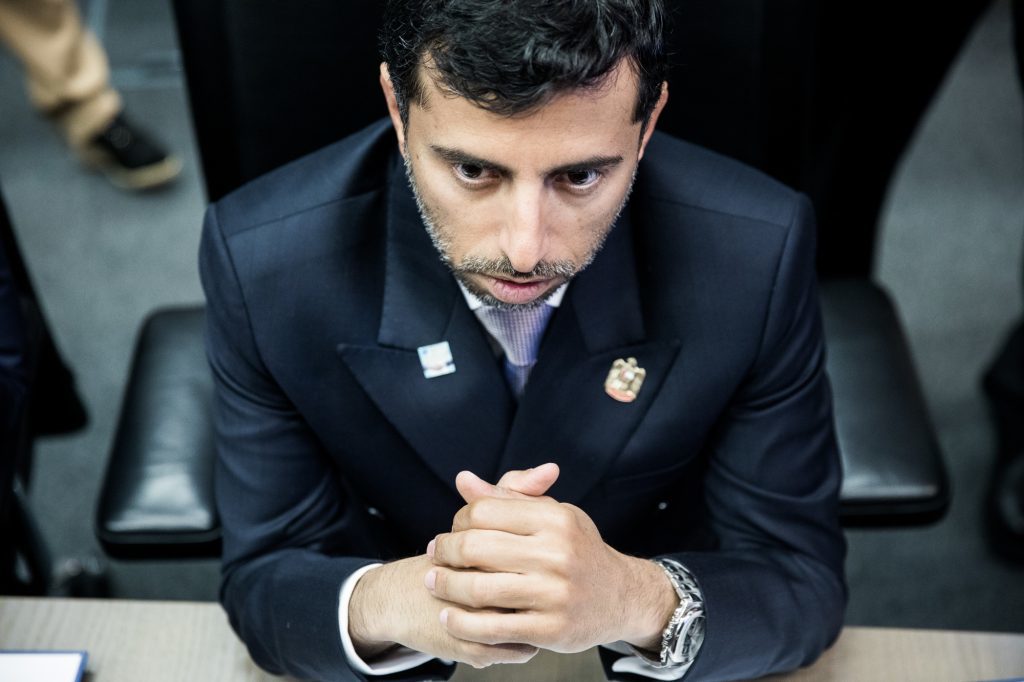
OPEC will stick with production cuts for the rest of the year as the group makes headway toward its goal of clearing an oversupply of crude, United Arab Emirates Energy Minister Suhail Al Mazrouei said Thursday.
Oil demand showed surprising growth in 2017, and compliance with output cuts by the Organization of Petroleum Exporting Countries and allied producers increased in spite of higher crude prices, he said at a conference in Abu Dhabi. The market still has room for improvement, said Al Mazrouei, who is serving as OPEC’s president for 2018.
“I am confident of the commitment of all of the countries attending” OPEC’s meeting in November, he said, referring to the group’s gathering in Vienna where it agreed to extend historic limits on output until the end of the year. “Everyone is committed and everyone is benefiting from this agreement, and I have no doubt that we will continue a year of compliance in 2018.”
Price Gains
Crude prices were holding gains after a second yearly advance as OPEC and its allies trim supply to clear a glut. While U.S. output slid last week, the Energy Information Administration has forecast production will rise above 10 million barrels a day as soon as next month. Benchmark Brent crude, which gained 0.6 percent on Wednesday, was trading 7 cents lower at $69.13 a barrel in London at 8:45 a.m. local time.
Demand was expected to rise by 1 million to 1.2 million barrels a day in 2017 but ended the year with a growth rate of 1.5 million barrels a day, Al Mazrouei said. OPEC and non-OPEC compliance with production cuts will continue to be strong this year, he said, without giving a view on current or future crude prices.
“We still have more than 100 million barrels that need to be cleared” from world stockpiles, Al Mazrouei said. OPEC is targeting a reduction in global inventory levels to a five-year historical average.
However, the group shouldn’t focus on the five-year average for oil stockpiles and should look instead at how many days inventories can meet demand, Ed Morse, global head of commodities research at Citigroup Inc., said at the same conference.
Oil supply may increase by 2.5 million barrels a day at current prices, Morse said. Crude prices are near a peak and will continue to trade in a $25 range up or down for the next two to three years, he said.
Recommended for you
